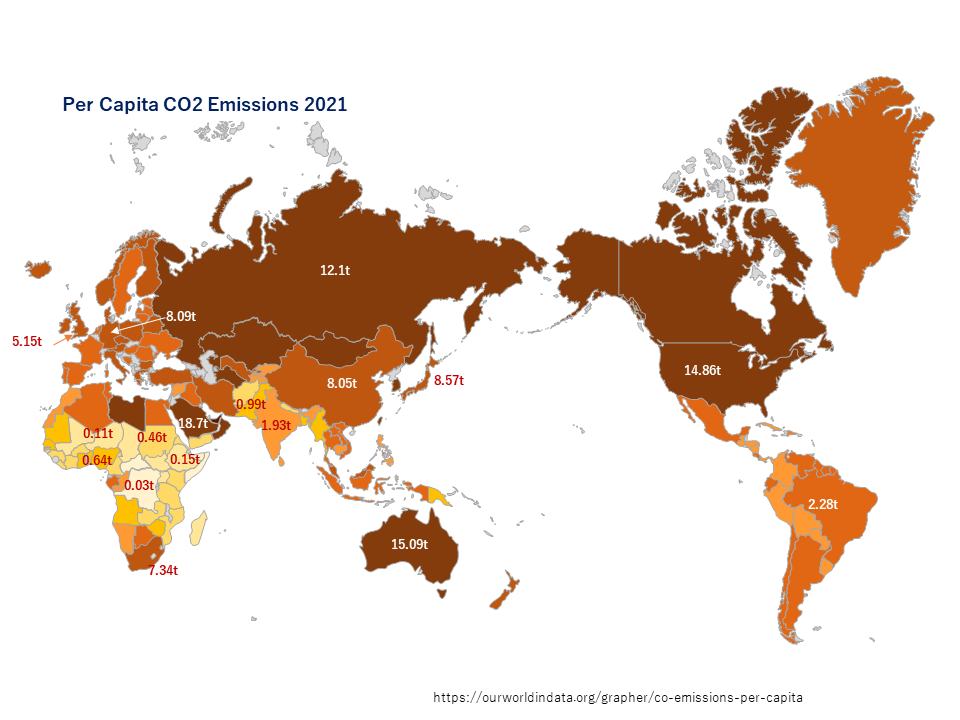Pick Up
851. Fragile States in Africa are the Biggest Victims of Climate Change

851. Fragile States in Africa are the Biggest Victims of Climate Change
Climate change poses a very serious threat to Africa, especially in fragile and conflict-affected states. From Central Africa to Somalia and Sudan, African countries that contribute the least to greenhouse gas emissions are disproportionately affected by the ravages of climate change, including floods, droughts, and other related crises.
On August 30, the International Monetary Fund (IMF) released a report to coincide with the upcoming Africa Climate Summit, scheduled for September 4-8 in Kenya, highlighting the harsh reality that vulnerable African nations are bearing the brunt of climate change. The report issued a stark warning that unless the international community steps in to help these nations adapt to extreme weather events, the consequences could become even more catastrophic.
According to the report, more than three times as many people in fragile states are affected by natural disasters each year than in other countries, and twice as many are forced to migrate as a percentage of their population. Vulnerable countries, largely due to their geography, are projected to experience an average of 61 days per year with temperatures above 35°C by 2040 - four times more than the rest of the world. These extreme heat waves and associated erratic weather patterns pose a significant threat to vital industries such as agriculture and construction, leading to reduced productivity and jeopardizing employment opportunities.
In addition, the IMF report asserts that climate change will trigger long-term macroeconomic problems in fragile states. Three years after experiencing extreme weather events, these countries can suffer GDP losses of up to 4%, in stark contrast to the 1% GDP loss experienced by other countries. Droughts, a common consequence of climate change in fragile states, can reduce GDP per capita by about 0.2%, resulting in slower income growth than in more stable regions.
The increased vulnerability of fragile states to the impacts of climate change is due to a combination of factors. Their geographic location places them in some of the hottest regions of the world, while other issues such as armed conflict, reliance on rain-fed agriculture, and inadequate risk management capacity exacerbate their vulnerability. Climate-related shocks also exacerbate existing challenges, including armed conflict and food insecurity, creating a devastating cycle that negatively impacts both the economy and the well-being of their people.
The IMF estimates that under a high GHG emissions scenario, armed conflict casualties per capita in fragile states will increase by nearly 10% by 2060, all else being equal. In addition, climate change is expected to increase the number of hungry people in fragile states by 50 million by 2050. The substantial losses attributed to climate change are exacerbated by the heavy reliance of these states on rain-fed agriculture, which accounts for a significant portion of their economies, although less than 3% of cultivated land is irrigated. Rain-fed agriculture remains highly vulnerable to droughts and floods, while existing irrigation infrastructure is often poorly designed, dysfunctional, or damaged during conflicts.
In the face of these challenges, policymakers in fragile states need to implement a range of strategic interventions. These include strengthening social safety nets to respond quickly to climate-related shocks, and establishing insurance schemes to provide financial resources for post-crisis recovery. There is also an urgent need for long-term policy initiatives to strengthen climate resilience and adaptive capacity, including investment in climate-resilient infrastructure. International support is essential to achieve these goals and to help fragile states cope with the escalating impacts of climate change.
Reference
Laura Jaramillo et al. (2023) Climate Challenges in Fragile and Conflict-Affected States
https://www.imf.org/en/Publications/staff-climate-notes/Issues/2023/08/…
Contributor: IIYAMA Miyuki (Information Program)
